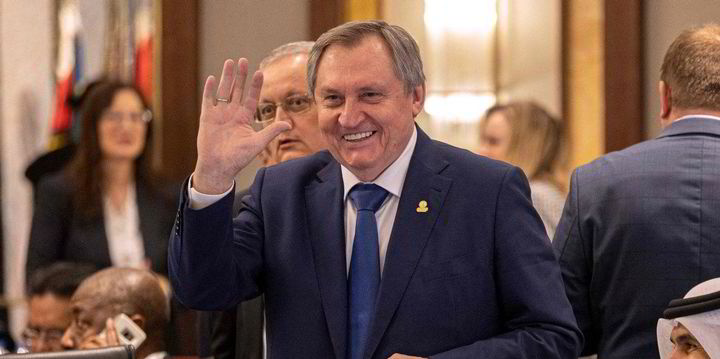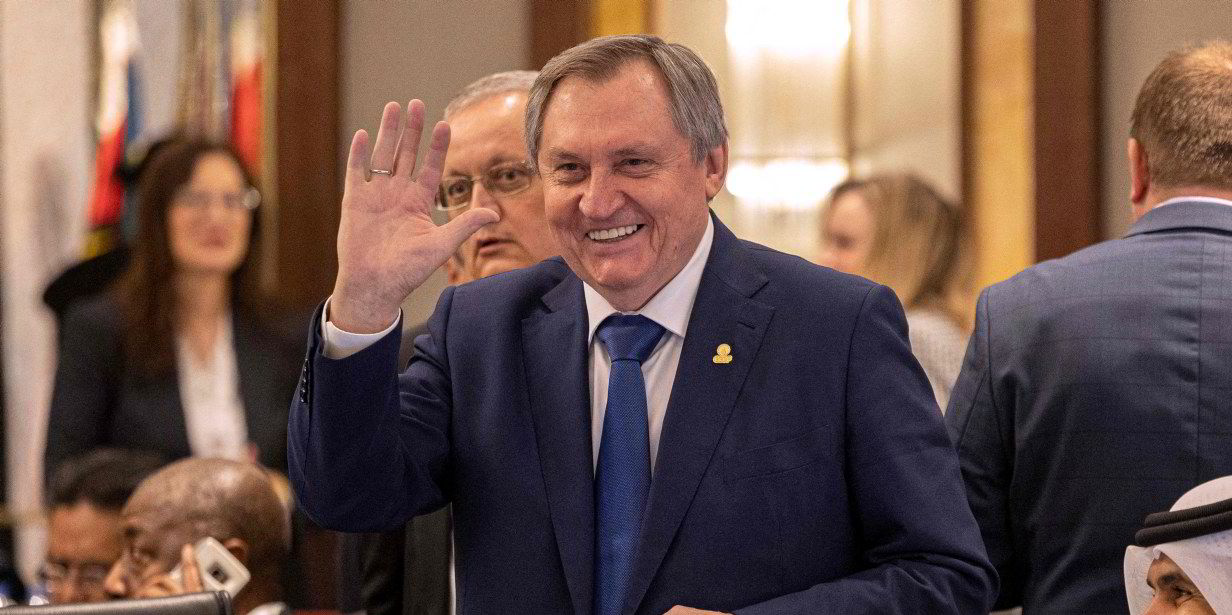Russian authorities expect to the country’s oil and gas production to decline this year — despite claiming to have successfully replaced crude exports affected by Western sanctions with new delivery routes to countries in Asia, Africa, Middle East and South America.
Russian Energy Minister Nikolay Shulginov told an annual energy event in Moscow that efforts to sign contracts with new customers in “friendly” states have enabled its oil producers “to avoid the decline in sales volumes”, according to state news agency Ria Novosti.
Russia uses the term “friendly” states to refer to nations that do not participate in international sanctions against Russia, the European oil embargo or the price cap restrictions on Russian oil and oil products imposed by the G7 group of leading economies following Russia’s invasion of Ukraine last year.
Shulginov singled out India and China as two largest buyers of Russian crude last year, with supplies to India 22 times greater than in 2021.
However, he did not comment on the impact of the repeatedly promised Russian oil production cut of 500,000 barrels per day.
Russian Deputy Prime Minister Alexander Novak reiterated on Monday that the reduction will last from 1 March to 30 June this year, and that the country closing in on the target.
Article continues below the advert
No official oil and gas production figures are available after the government classified regular official updates last year, but market data service Statista estimated Russian crude output in February at 9.8 million barrels per day, around the same level as the previous month.
Moscow business daily Vedomosti, meanwhile, said on Tuesday that Russia’s gas production in January and February fell almost 10% to just over 119 billion cubic metres compared with the same period of 2022.
Lack of choice
Mikhail Krutikhin, a partner at Moscow-based energy consultancy RusEnergy, said that while Russian oil producers have been able to identify new customers in remote countries, they have lost almost all flexibility in gaining buyers in enough different locations to obtain a better price.
Krutikhin also suggested that China and India may obtain stronger leverage against Russia because they are playing such a vital role in supporting the country’s oil industry.
Novak has repeatedly complained about the double-digit discount on Russia’s Urals blend crude — the country’s most common oil export blend — that new buyers have demanded to compensate for higher shipping and insurance costs.
Novak expressed hope that the Urals discount may reduce in time as freight rates decline.
However, earlier this week, Spain tightened procedures for ship-to-ship oil transfers that are understood to be used to transfer Russian oil cargoes from smaller vessels to larger tankers destined for locations in Asia and Africa, according to Reuters.
Owners of oil tankers seeking to carry out such transfers offshore the Spain’s Mediterranean and Atlantic coasts will have to seek authorization from the closest Spanish port, even if they take place outside Spain’s territorial waters.
The new rules due to come into force in mid-April are being introduced after Spanish authorities intercepted several oil tankers suspected of spilling crude into the Mediterranean Sea near Barcelona and off the Canary Islands during ship-to-ship transfers.

